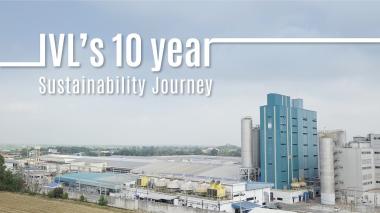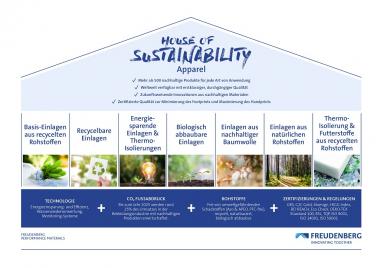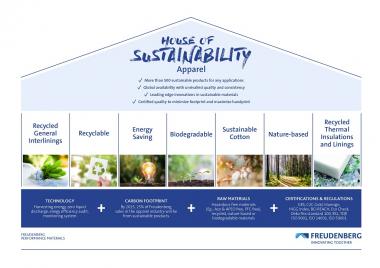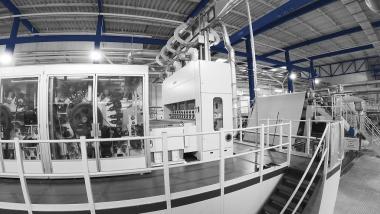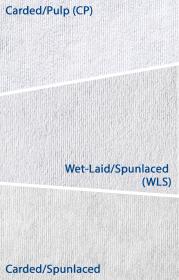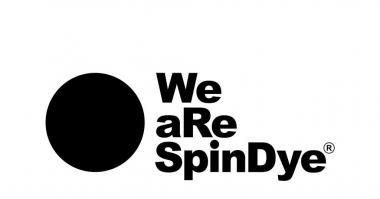Indorama Ventures launches its 10th annual Sustainability Report
- IVL is celebrating a decade of PET recycling and carbon reduction milestones
- Over 10 years, IVL has achieved a 100x increase in recycled PET
Indorama Ventures Public Company Limited (IVL), a world-class sustainable chemical company, launches its 10th annual Sustainability Report and a video celebrating a decade of ambitious PET recycling and carbon reduction milestones. The company is committed to intensifying its drive towards ending plastic waste and a more circular economy in the decade ahead.
Since its first Sustainability Report in 2011, IVL has grown its sustainability initiatives through the 3Ps – People, Planet and Prosperity. From the baseline in 2013, the company achieved a 10% reduction in GHG intensity, 4% in energy intensity and 7% in water intensity. It also increased total waste diverted from landfill from 48% to 84% in 2020. Moreover, IVL’s global PET recycling capacity has improved almost 100 times from 3,576 tons per year in 2011 – the first entry of IVL to the PET recycling business – to more than 330,000 tons per year in the second quarter of 2021.
Celebrating 10 years of sustainability reporting
Throughout the decade, IVL has voluntarily adopted international standards for its sustainability reports to drive benefits for the environment, society and economy. The effort resulted in recognition by world-class sustainability ratings agencies such as the Dow Jones Sustainability Indices (DJSI) and the Morgan Stanley Capital International (MSCI).
Recent Sustainability Reports have featured business cases and special situations such as COVID-19. In 2016, IVL was the first Thailand-based company to introduce an additional, shorter version of the report called the Sustainability Report Executive Summary. This year, IVL has made further improvements with an interactive approach, including links to videos and shortcuts to highlighted articles. As a global company operating in 33 countries, the report is available in 15 languages.
On track to recycle 50 billion bottles per year by 2025
In 2020 IVL recycled 10.1 billion PET bottles and is on track to recycle 50 billion bottles per year by 2025. The company’s global reach and leadership position as the world’s largest PET and recycled PET resin producer allow IVL to leverage a closed-loop system. In 2020 IVL invested in three additional recycling facilities and recently acquired CarbonLite’s recycling assets in Texas.
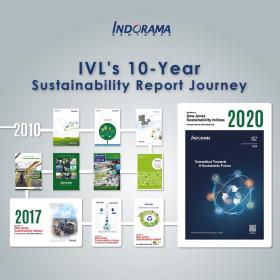 (c) Indorama Ventures Public Company Limited
(c) Indorama Ventures Public Company Limited
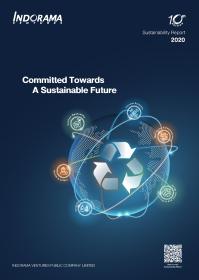 (c) Indorama Ventures Public Company Limited
(c) Indorama Ventures Public Company Limited
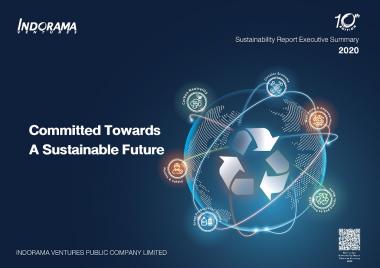 (c) Indorama Ventures Public Company Limited
(c) Indorama Ventures Public Company Limited
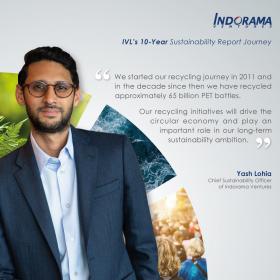 (c) Indorama Ventures Public Company Limited
(c) Indorama Ventures Public Company Limited
Indorama Ventures Limited Sustainability Recycling carbon reduction PET recycling Indorama Ventures Public Company Limited
Indorama Ventures Public Company Limited


